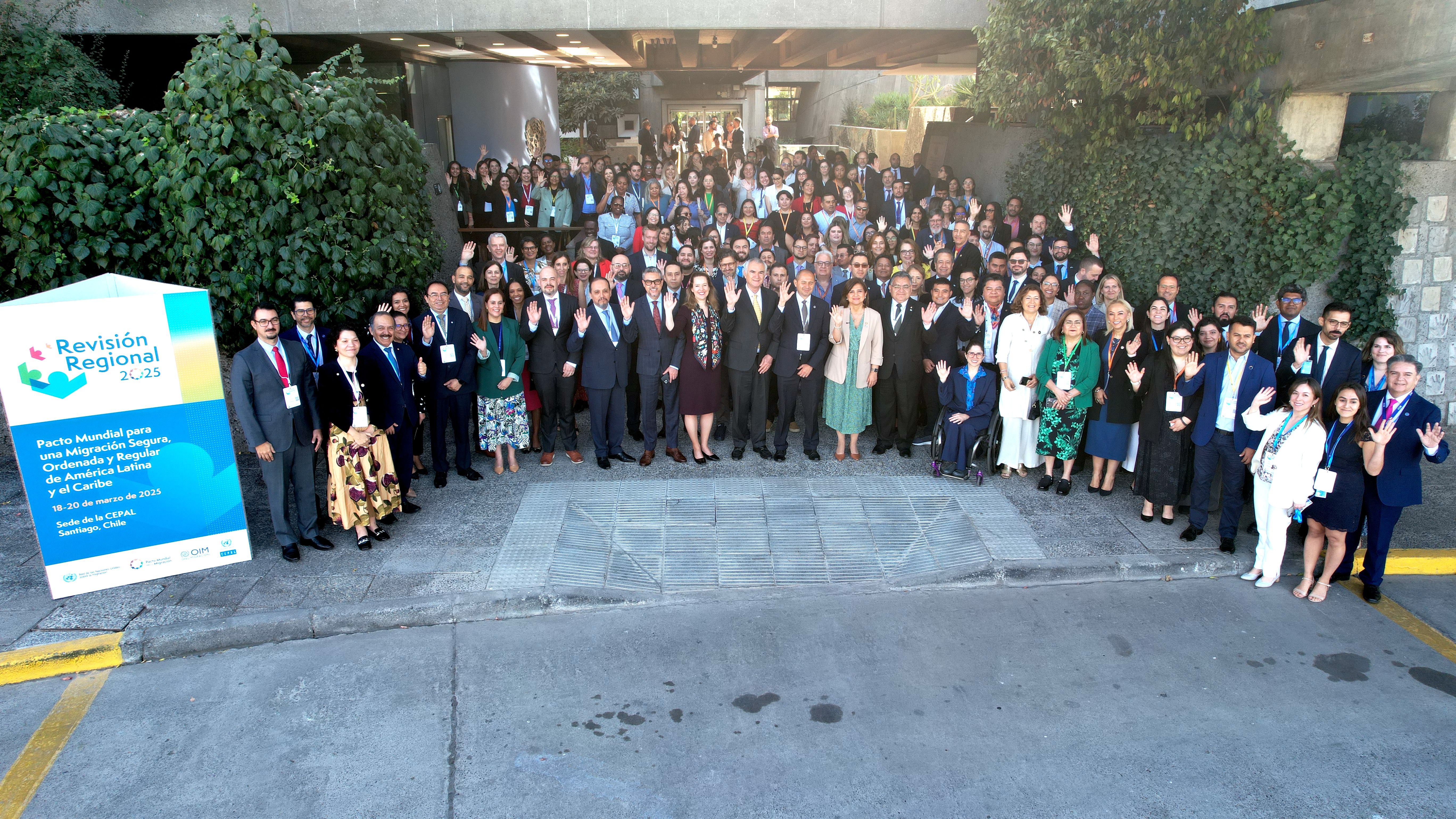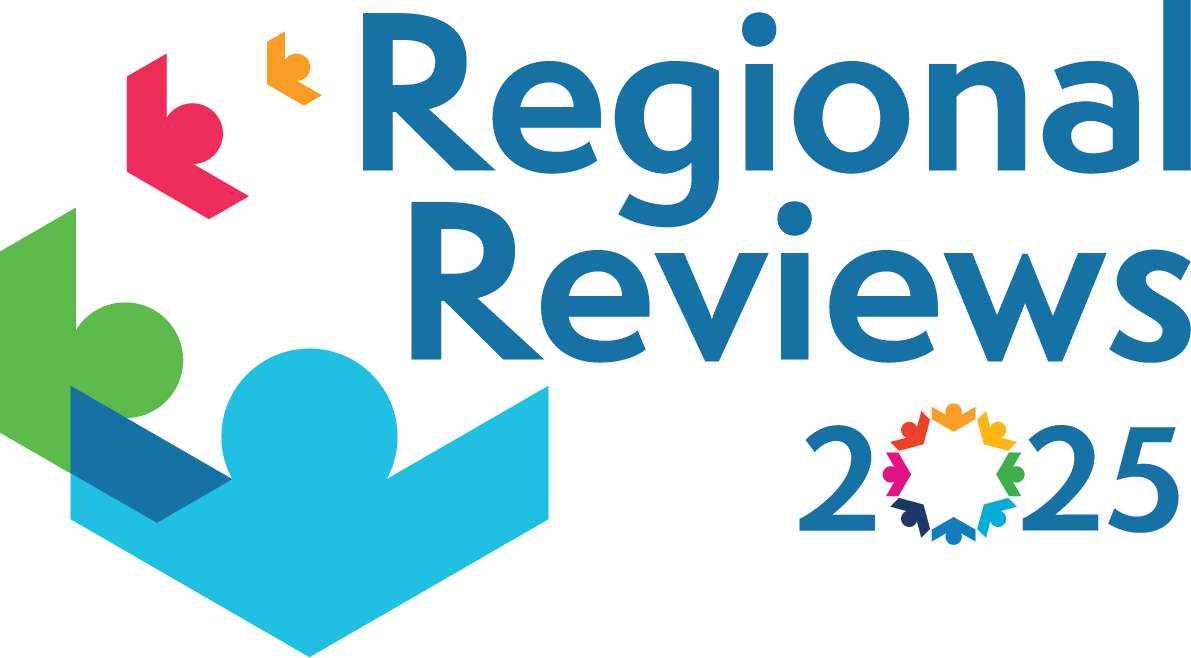The Challenges Posed by Migration Require a Multilateral Response, Promoting Co-Responsibility among States and Considering the Full Migration Cycle
Work area(s)
The second regional review meeting on implementation of the Global Compact for Safe, Orderly and Regular Migration was inaugurated today at ECLAC’s main headquarters in Chile.

The Global Compact for Safe, Orderly and Regular Migration is an essential framework for improving international cooperation on all aspects of migration and its implementation requires comprehensive and multidimensional approaches, according to the representatives of Latin American and Caribbean countries, international organizations and civil society gathered today at the inauguration of the second regional review meeting on the global agreement’s implementation, which will be held through Thursday, March 20 at the main headquarters of the Economic Commission for Latin America and the Caribbean (ECLAC) in Santiago, Chile.
At this event – organized by ECLAC and the International Organization for Migration (IOM), in their capacity as co-chairs of the Regional United Nations Network on Migration – the participants stressed that regional cooperation and the meaningful participation of the various stakeholders are indispensable components for achieving better results on implementation of the Global Compact.
The regional meeting was inaugurated by José Manuel Salazar-Xirinachs, ECLAC’s Executive Secretary; Amy Pope, IOM Director General and Coordinator of the UN Network on Migration; and María Teresa Urueña, a representative of the Red Jesuita de Colombia and Stakeholders Rapporteur. The Vice President of Guatemala, Karin Herrera, joined the opening segment of the event, which is being chaired by Alejandro Solano Ortiz, Costa Rica’s Vice Minister of Multilateral Affairs.
“We at ECLAC hold the deep conviction that the challenges posed by migration must be addressed multilaterally, establishing co-responsibilities among States and taking the full migration cycle into account. It is particularly indispensable that States respond adequately to these new challenges, and that they offer regular pathways for human mobility, along with access to social protection and decent work,” ECLAC’s Executive Secretary affirmed in his inaugural remarks.
He emphasized that practically all the countries of Latin America and the Caribbean are part of migration cycles, whether as countries of origin, destination, return or transit.
According to United Nations estimates, some 48.3 million people from the region were living outside their countries of birth in 2024, representing 15.9% of the world’s migrant population. That same year, the region’s total population represented just 8.1% of the global population, which means that the region is overrepresented in matters of migration.
The United States is still the top migration destination for Latin American and Caribbean people, with 26.4 million migrants from the region living in that country as of 2024. This means that more than half (55%) of all migrants from Latin America and the Caribbean lives in the United States. Spain is another important migration destination for the region and ranks second among the destinations outside the region, with more than 4.1 million Latin American and Caribbean natives living there in 2024.
However, what is most notable is that intraregional migration continues to rise: the proportion of Latin American and Caribbean migrants who have migrated to another country in the region has practically doubled, going from just 15% of total migrants in 2000 to 29% in 2024 – a percentage that corresponds to 14 million people.
“Those of us at the United Nations reject hate speech and violence against migrant persons, and we encourage the production of empirical evidence that can shine light on the valuable contributions that migrants make to the sustainable development of the region’s countries,” José Manuel Salazar-Xirinachs stated.
Meanwhile, IOM Director General Amy Pope emphasized that “it’s an important moment in which we are meeting. This is not just the second review of the Global Compact for Safe, Orderly and Regular Migration in this region. This review is coming at a critical moment in time where the conversation about migration and the ways to respond to the issue of migration have become more fraught than ever.”
María Teresa Urueña, representative of the Red Jesuita de Colombia and Stakeholders Rapporteur, indicated that migration governance is needed, based on a human rights approach instead of a security approach.
“Discrimination and xenophobia must be combated in public discourses, especially when they are used for electoral purposes and to create polarization in our societies,” she said.
Alejandro Solano Ortiz, Costa Rica’s Vice Minister of Multilateral Affairs, stressed that migration is not a unilateral challenge but rather a shared responsibility.
“The Global Compact reminds us that our success will depend on mutual trust, the determination and solidarity of States, the support of international cooperation, of multilateral organizations, international financial institutions, of academia, the private sector and civil society to fulfill the goals and commitments we have acquired,” he underscored.
The Global Compact for Safe, Orderly and Regular Migration is a non-legally binding cooperation framework that recognizes that no State can address the migration issue on its own, given its transnational and multidimensional nature. It consists of 23 intertwined objectives, under a series of cross-cutting and interdependent principles related to multilateralism. It is the first UN global agreement to establish a shared approach to international migration in all its dimensions.
This second regional review consists of four panel discussions that will address issues such as Inclusion; Drivers of migration and regular routes; Migration governance, saving lives, sustainable return and reintegration; and Data, evidence-based policies and international cooperation. The meeting also includes a high-level panel on regular pathways and a session on regional cooperation and partnerships.
Related event

Second regional review meeting on the implementation of the Global Compact for Safe, Orderly and Regular Migration
The regional review meeting will be held on March 18-20, 2025 at the United Nations Economic Commission for Latin America and the Caribbean (ECLAC) headquarters in Santiago, Chile. It will begin with…
Related content

Second regional review meeting on the implementation of the Global Compact for Safe, Orderly and Regular Migration
The regional review meeting will be held on March 18-20, 2025 at the United Nations Economic Commission for Latin America and the Caribbean (ECLAC) headquarters in Santiago, Chile. It will begin with…
Related link(s)
Contact
Public Information Unit
- prensa@cepal.org
- (56 2) 2210 2040